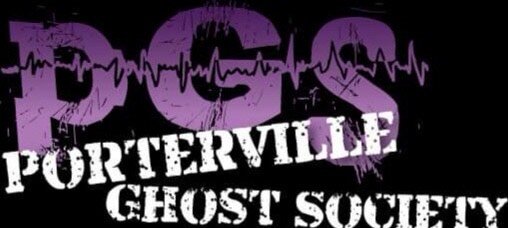
Words We Use
Below is a list of basic terms that are commonly used during paranormal investigations:
Afterlife: Life after death.
Anomaly: Something that cannot be explained.
Apparition: Any ghost that seems to have a physical substance, whether visual, auditory, tactile, or olfactory.
Clearing: Getting rid of ghostly activity in a specific location.
Cold Spots: Areas of cool air found in haunted locations.
Ectoplasm: A substance thought to be emitted by spirits and from mediums communicating with the spirit world.
Elementals: Ancient earth spirits, fae and fairies are in this category
EMF (Electromagnetic Field or Electromagnetic Frequency): A combination of electrical and magnetic fields. EMF fields are commonly measured as part of the ghost hunting process.
Entity: Any being, including people and ghosts.
Epicenter: Person or persons that a poltergeist or haunting tends to focus on. Paranormal phenomena usually increases when the epicenter is present.
EVP (Electronic Voice Phenomena): The act of capturing and recording disembodied voices and sounds.
Exorcism: Ridding a person or a location of evil spirits by using religious rites.
Ghost: A sentient entity or spirit that visits or lingers in our world after death.
Ghost Hunters: People who investigate hauntings to find explanations for possible paranormal phenomena involved.
Ghost Lights: Mysterious lights, seen at a distance, usually appearing as blue or yellow spheres, which can appear to blink.
Haunting/Haunted: Describes a location where there appears to be significant paranormal activity. Often includes a combination of cold spots, apparitions, missing objects, and other repeated phenomenon witnessed by several people which leads to the location getting a reputation for this activity.
Manifestation: The tactile, auditory, olfactory, and visual signs of a haunting.
Medium: Someone who communicates with ghosts and the other side.
Orbs: Spheres of translucent light (often whitish or pastel coloured), usually appearing in photographs. Many investigators believe they represent spirits or ghost.
Paranormal: Anything outside the realm and experiences we call normal. Often used to describe ghosts, UFO’s and other phenomena that defy traditional scientific explanations.
Pareidolia: a psychological phenomenon that causes people to see patterns in a random stimulus. This often leads to people assigning human characteristics to objects. Often called "Matrixing"
Physical Manipulation: When an object of some sort is thought to be moved or physically altered by a ghost or spirit (such as lights going on and off and objects moving without any human interaction).
Poltergeist: A spirit who makes noise or plays pranks. Often thought to centre around specific individuals (such as teenagers) and perhaps not ghosts at all but rather a form of latent telekinetic ability.
Portal: A doorway through which spirits enter and exit a location.
Possession: When a person, or even inanimate object, is taken over by a spirit or ghost.
Primary Readings: The initial measurements of energy taken at a haunted location, used for establishing an investigation’s direction.
Psi: A term for “psychic phenomena.”
Psychic: Can relate to the spirit or mind, depending upon the context. Psychics are people who can see things outside physical laws and perception.
Residual Energy or Haunting: When emotionally charged events leave an imprint or energy residue on nearby objects and locations. Residual energy or hauntings will often repeat a specific event from the past over and over again, as if on a loop, such as the same footsteps walking down a hallway.
Revenant: A ghost that only comes back a few times after death.
Séance (aka Contact Ceremony): A gathering of individuals to contact the spirit of a deceased loved one or other person (usually consisting of a medium, assistants, loved ones of the departed, or other interested individuals). Many séances were exposed as hoaxes in the late eighteenth and early nineteenth centuries.
Spirit: From Latin meaning “that which breathes,” it describes the consciousness or soul of an individual. In the ghost hunting context, this refers to the soul of an individual who has passed on and continues to be observed in an area.
Spiritualism: A belief in the spirit world and/or the ability to communicate with spirits of the dead.
Telekinesis: The ability to control one’s physical environment without using physical manipulation or force (also known as psychokinesis, TK, or PK).
Telepathy: The process by which a mind can communicate directly with another without using normal, physical interaction or ordinary sensory perception.
Vortex: A center of focused or concentrated spiritual energy.
